NUR-SULTAN – For Kazakhstan, 2021 was a year of successful political and social reforms, gradual economic recovery from the pandemic, and most importantly the country marked 30 years of its independence. In this article, we offer a look back at the most important events that took place in the past 12 months.
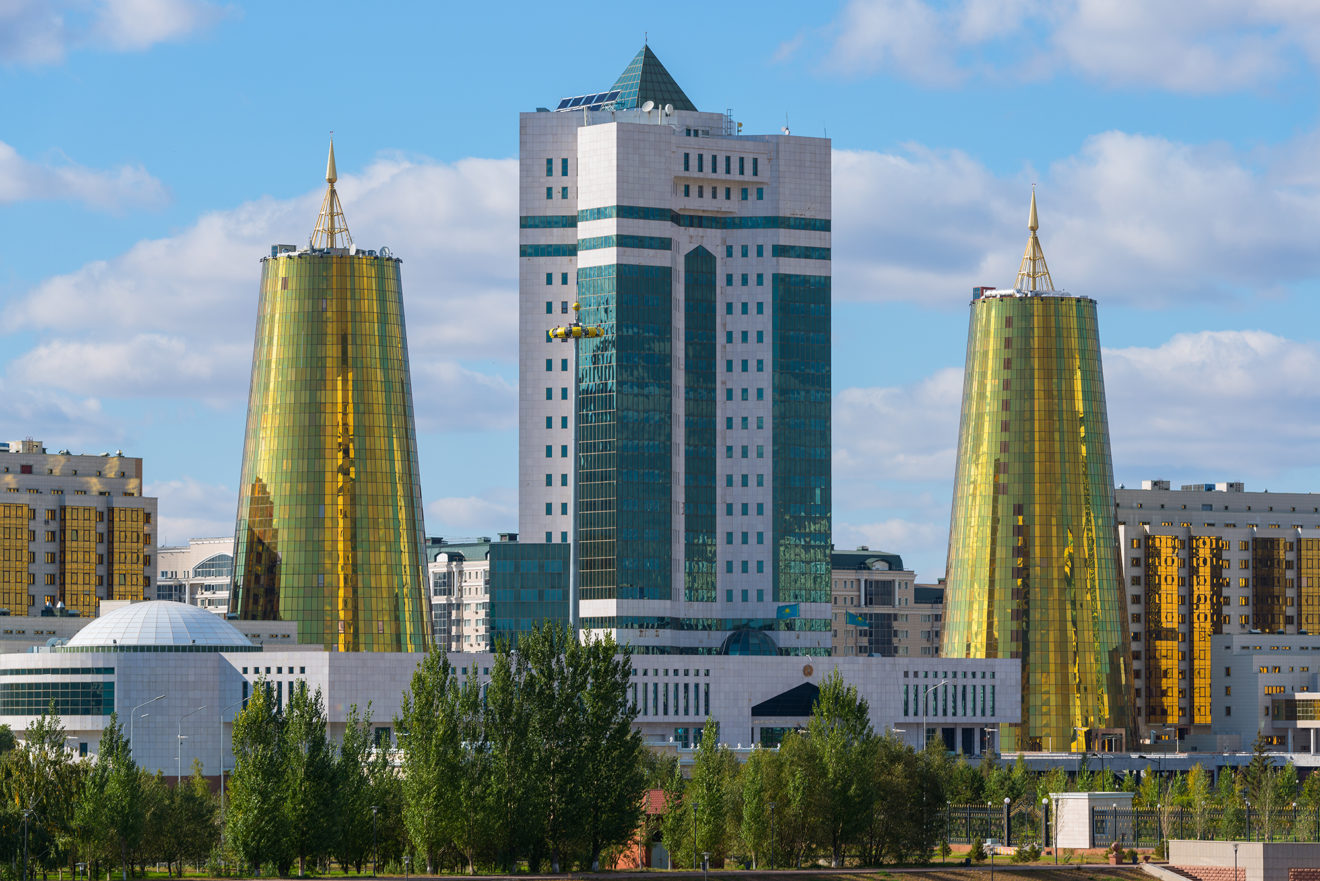
A view of the main administrative buildings on the left bank of the city. Photo credit: Maxim Zolotukhin.
30 Years of Independence
Kazakhstan celebrated the 30 year anniversary of its independence on Dec. 16. Due to the restrictions that are currently in place to curb the spread of coronavirus, this year’s celebrations were different than usual. Instead of large public gatherings, Kazakhstan hosted smaller conferences and events within the country and beyond to mark this important occasion.
Foreign politicians and experts were invited to share their vision of the country’s achievements over the last 30 years. Events ranging from festivals to book presentations and performances by leading artists around the world were organized to celebrate independence.
Dec. 16 concluded with fireworks in all the major cities of Kazakhstan.
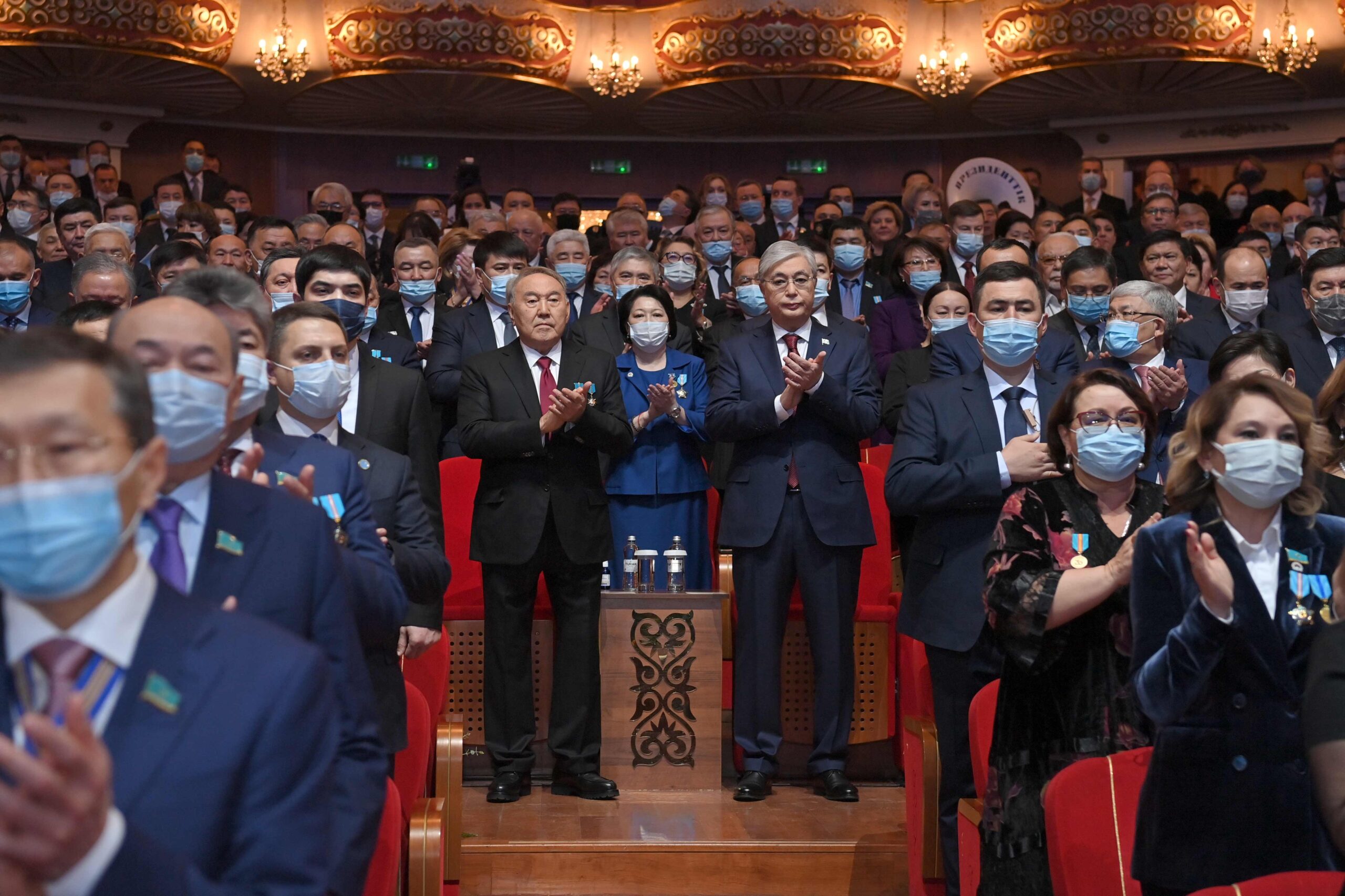
First President Nursultan Nazarbayev and President Tokayev during the official reception devoted to the celebration of Independence Day. Photo credit: Akorda
Foreign leaders also congratulated Kazakhstan on this occasion, including Russian President Vladimir Putin, U.S. President Joseph Biden, former United Nations Secretary and President of the Global Green Growth Institute Ban Ki-moon, ex-Federal Chancellor of Germany Gerhard Schroder, among others.
Over the years of independence, Kazakhstan has managed to reduce poverty, increase the population’s access to primary education, and improve gender equality and social security for children and mothers.
The country’s GDP grew 17 times in dollar equivalent. Population income grew 10 times, while unemployment was reduced from 12.8 percent to 4.9 percent. The average life expectancy in the country increased to 71 years.
Political Reforms
This year started with the parliamentary election to the Majilis, the lower house of the Kazakh Parliament, the maslikhats, local representative bodies, on Jan. 10.
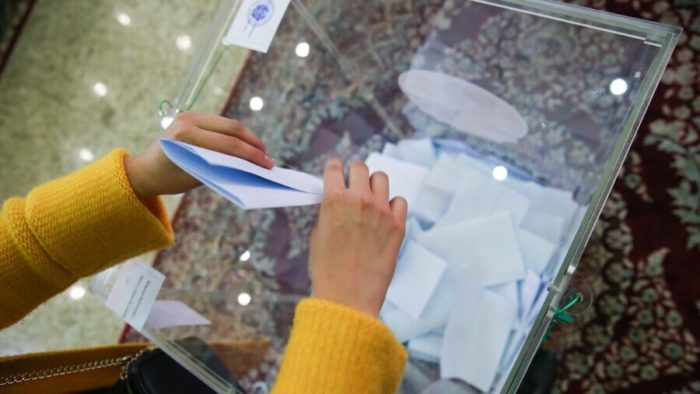
The Majilis is the lower chamber of the Kazakh Parliament consisting of 107 deputies, who are elected for a five-year term. Photo credit: informburo.kz
For the first time, Kazakhstan introduced a 30 percent quota for women and youth in party lists at the initiative of President Kassym-Jomart Tokayev. All participating political parties managed to fulfill the quota.
This year, five political parties competed for seats, but only three parties – Kazakhstan’s ruling Nur Otan party, the Ak Zhol party and the People’s Party of Kazakhstan – made up the new composition of the Majilis. Voter turnout reached 63.25 percent.
On May 25, President Tokayev signed a new law on elections introducing the direct election of rural akims (heads of regional districts), reducing the election threshold for the parties from seven to five percent, and adding the “against all” option to the ballots.
The election of more than 700 rural akims was held nationwide on July 25. Previously, rural akims were appointed by akims at a higher level.
Chairpersonship at the Eurasian Economic Union
Kazakhstan assumed the chairpersonship in the Eurasian Economic Union (EAEU) this year.
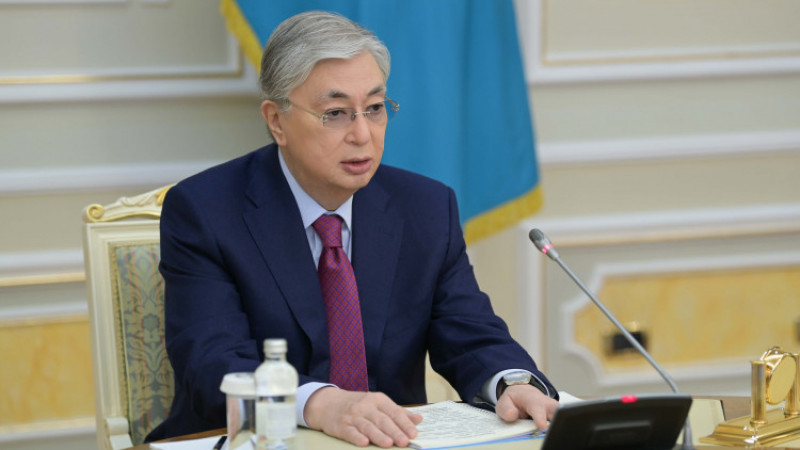
The establishment of the union back in 2014 was the initiative of Nursultan Nazarbayev. Photo credit: Akorda
“At the beginning of our chairpersonship, I put forward five areas of joint work – strengthening industrial cooperation, removing trade barriers, transport and logistics development, digitization, and expanding trade and economic cooperation with third countries. This is not a one-day’s work, but we could now see the successful implementation of some of them,” said President Tokayev at the Supreme Economic Council meeting in December.
Over the first nine months of 2021, mutual trade made between the EAEU member states grew by 32.5 percent reaching $52 billion, an increase of 16 percent compared to pre-pandemic levels. Exports from Kazakhstan to the member states also grew 39 percent.
Significant work was done to remove the barriers to trade within the EAEU. Some 80 percent of the barriers in the domestic market have been eliminated. In the first ten months of this year, 883,200 twenty-foot equivalent units (TEU) of goods were transported through Kazakhstan to Central Asia, Europe, the Far East, which is 25 percent more than during the same period last year.
In 2022, Kyrgyzstan will take over the presidency of the EAEU.
National Population Census
The third national population census took place from Sept. 1 to Oct. 30 in an online format. According to the preliminary results of the census, the population of Kazakhstan reached 19.17 million people with men constituting 48.71 percent of the population, and women – 51.29 percent. 33.97 percent of the population are children under the age of 17, and 19.72 percent are young people aged 14-28.
“The share of children and youth in Kazakhstan’s population is 53.69 percent. This proportion of young people will have a significant impact on government policies in the next decade. They need an effective learning environment, they should take part in sports and cultural activities,” said Sabina Sadiyeva, the Deputy Director of the Kazakhstan Institute for Strategic Studies under the President of Kazakhstan.
The average age of the population is 31.94 years. The share of Kazakhs in the ethnic composition reached 70.18 percent.
Development of QazVac
In April, Kazakhstan produced its first batch of the QazVac vaccine. The vaccine was developed by researchers from the Kazakh Biosafety Research Institute in the Zhambyl Region. The first 50,000 doses of the vaccine were delivered to the regional health management warehouses across the country.
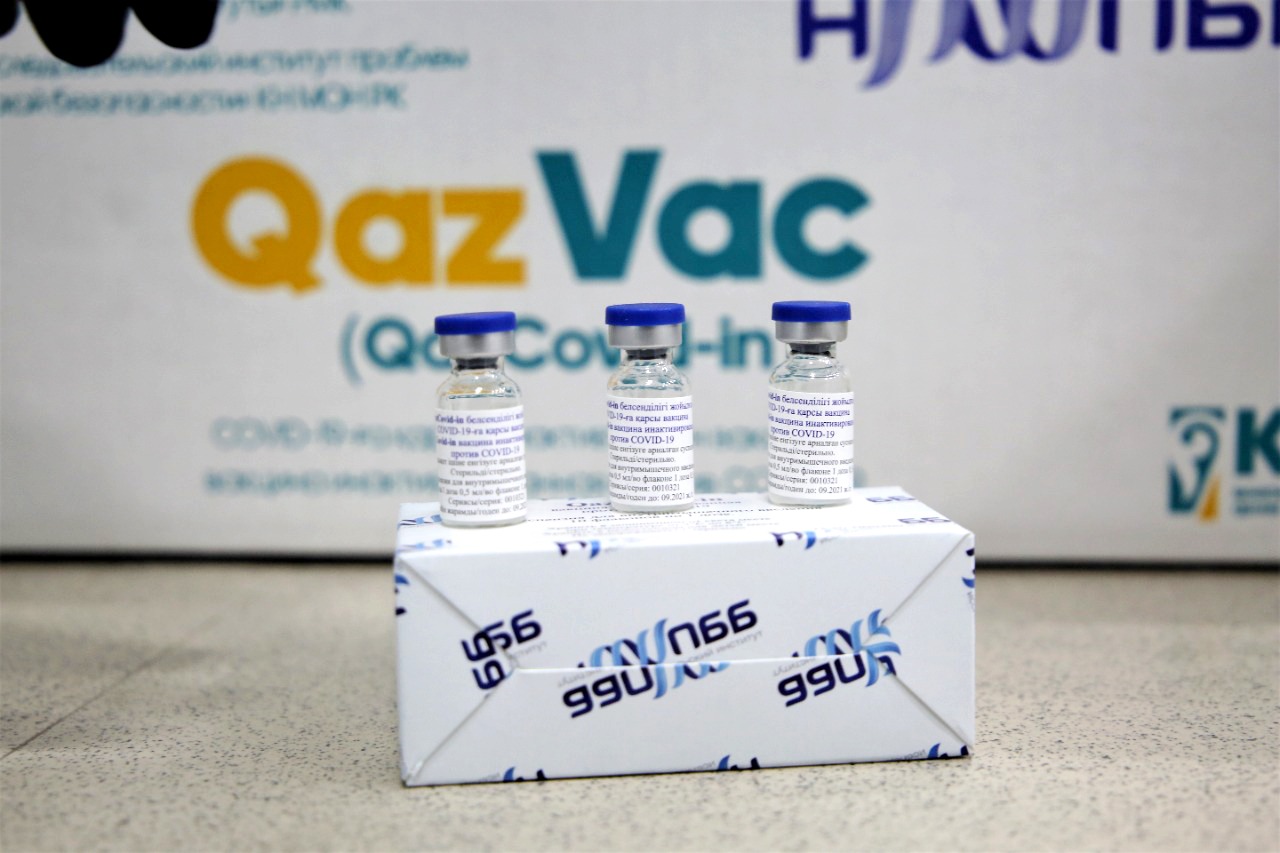
QazVac vaccine produced its first batch. Photo credit: primeminister.kz.
Phase 1 of the clinical trials was conducted between September 2020 and March 2021, involving 44 volunteers, while the second trial took place from October 2020 till April 2021, with 200 volunteers. The results of phase 1 and phase 2 clinical trials of the QazVac vaccine have been published in Lancet’s EClinicalMedicine journal in August 2021. In September, phase 3 trials of the QazVac vaccine were completed. 3,000 people participated in the phase 3 trials.
According to the results of the first two clinical trials, the Kazakh vaccine demonstrated effectiveness of 96 percent.
The report on the final clinical trials is currently pending approval by the National Centre for Expertise of Medicines and Medical Devices. Once it receives authorization from the expert review, the institute will begin preparations to submit an article to a peer-review medical journal.
In the Commonwealth of Independent States (CIS), only Kazakhstan and Russia have established their own production of vaccines against COVID-19.
Vaccination has had a positive impact on the epidemiological situation in the country. In December, Acting Minister of Health Zhandos Burkitbayev said that nearly 75 percent of the eligible population for vaccination, or 8.4 million people, has been fully immunized against COVID-19 in Kazakhstan.
Pension Reforms
Starting Jan. 23, Kazakh citizens were able to withdraw part of their pension savings to improve their housing conditions based on the decree signed by President Tokayev as part of the broader effort to reform the country’s pension system. Only citizens whose pension savings exceed a sufficiency threshold were eligible for this.
Prior to September, nearly 250,000 people had used their pension savings through Otbasy Bank withdrawing a total amount of over 1.4 trillion tenge (US$ 3.2 billion).
Humanitarian Assistance to Afghanistan
Kazakhstan continues to provide humanitarian aid to Afghanistan. In 2021, Kazakhstan delivered 5,000 tons of flour to Afghanistan as humanitarian aid.
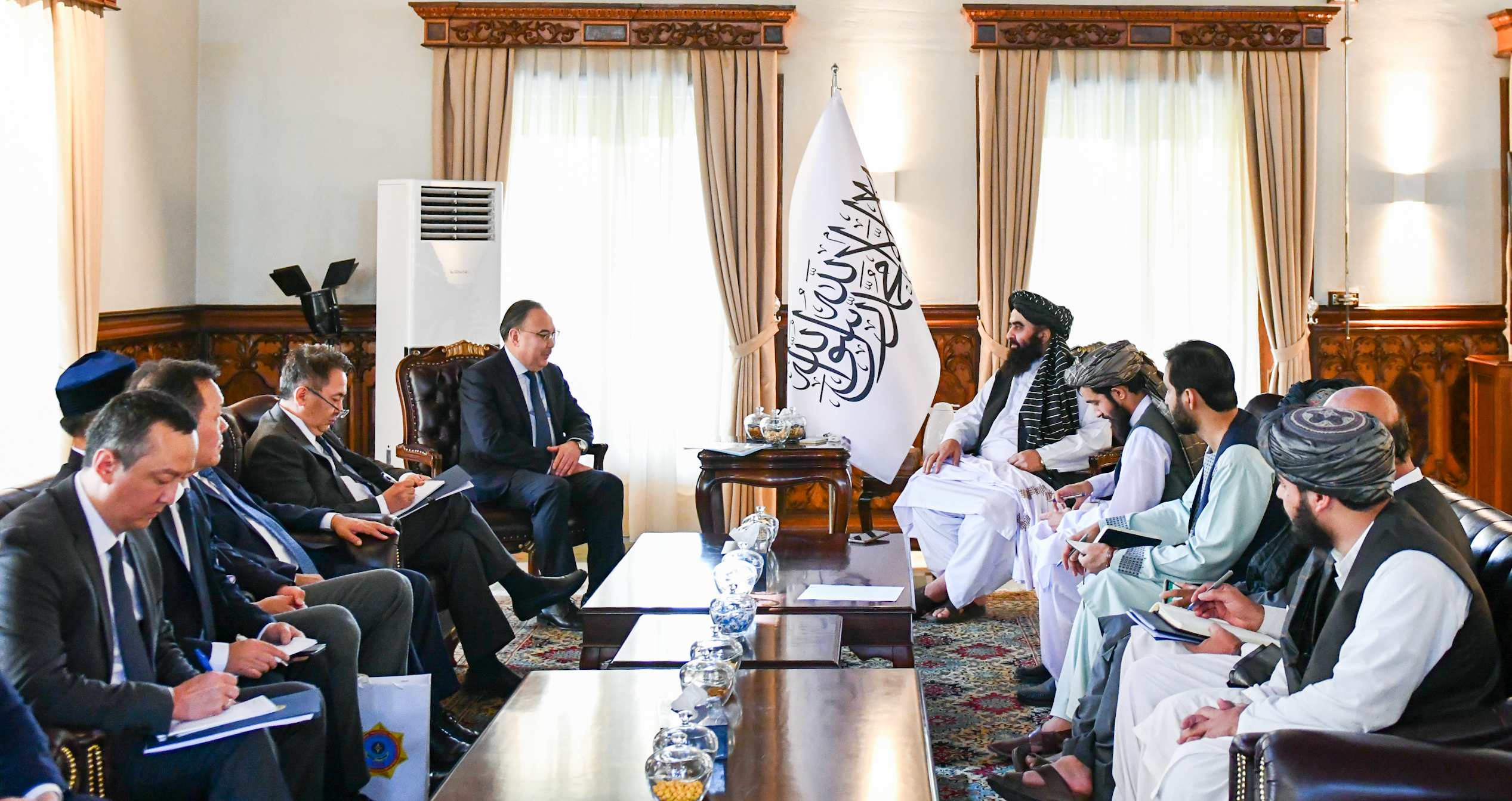
Special Representative of the President of Kazakhstan for International Cooperation Erzhan Kazykhan visited Kabul in September. Photo credit: Akorda
More than 200 Afghan students in Kazakhstan also received financial and legal advisory support. The Migration Service Committee of the Kazakh Ministry of Internal Affairs has also issued and extended visas to 155 Afghan students studying at local universities. Kazakhstan provided a humanitarian transit corridor for Afghan female judges and members of parliament and their families. The city of Almaty was chosen as a temporary location for UN agencies in Afghanistan.
For next year, Kazakhstan has proposed to provide its QazVac vaccine to the people of Afghanistan.
Pledge to Achieve Carbon Neutrality
Kazakhstan participated at the UN Climate Change Conference (COP26) in Glasgow where it declared its carbon neutrality targets. President Tokayev announced that Kazakhstan will reach carbon neutrality by 2060 as part of the nation’s strengthened national climate plan during the Climate Ambitions Summit held in December 2020.
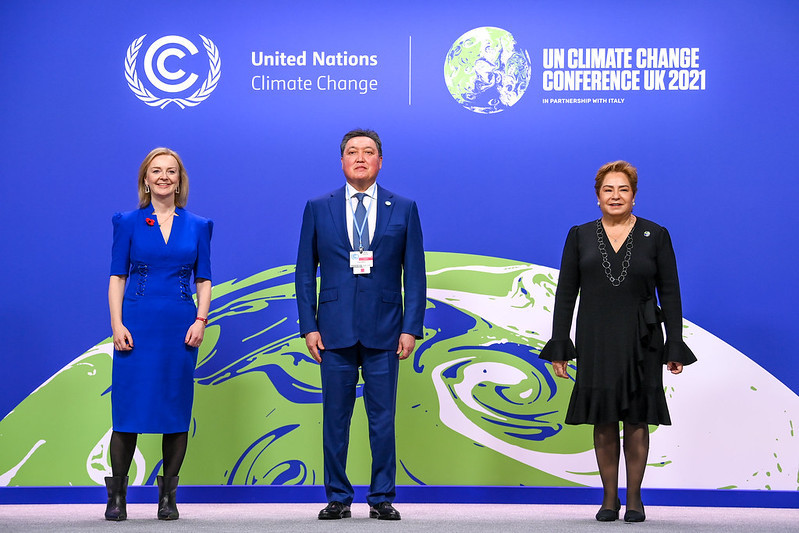
UK’s Foreign Secretary Liz Truss and Executive Secretary of United Nations Framework Convention on Climate Change Patricia Espinosa greet Kazakh Prime Minister Askar Mamin at the Leaders Summit of the 26th UN Climate Change Conference in Glasgow on Nov. 1. Photo credit: Karwai Tang/ UK Government
At COP26, Kazakhstan announced its intention to increase energy production from renewables from 3 to 15 percent and to reduce greenhouse gas emissions by 15 percent by 2030. Kazakhstan also plans to increase the national carbon absorption capacity by planting more than two billion trees. A 30 percent reduction in the share of energy generation from coal from 68.9 to 40.1 percent is also expected.
In December, Prime Minister Askar Mamin said that 22 projects with a capacity of 450 megawatts will be put into operation by the end of 2021. Investments reached $445 million.
More than 60 renewable energy projects with a total capacity of 2,400 megawatts are planned to be launched over the next four years. Investments for these projects will exceed $2.5 billion.
Cultural Milestones
2021 started with a milestone for the Kazakh music industry – Imanbek Zeikenov, known as Imanbek, won the Best Remixed Recording award for his remix of Saint Jhn’s 2016 song “Roses” at the 63rd Grammy Awards which aired on March 14. He became the first winner of the award in the history of Kazakhstan. In May, Imanbek received the 2021 Billboard Music Award for Top Dance/Electronic Song, which became Imanbek’s second prestigious international award this year.
The Kazakh film industry also made significant progress. Local directors saw their movies premiering at international film festivals and receiving prestigious awards. The Kazakh Film“Akyn” (“Poet”) by Kazakh director Darezhan Omirbayev entered the 72nd Berlin International Film Festival program, one of the largest annual film festivals around the globe.
Kazakhstan’s “Mukagali” won the Ecumenical Award at the International Tallinn Black Night Film Festival and “Maryam” won an Honorary Mention Award at the Cannes Shorts Film Festival.
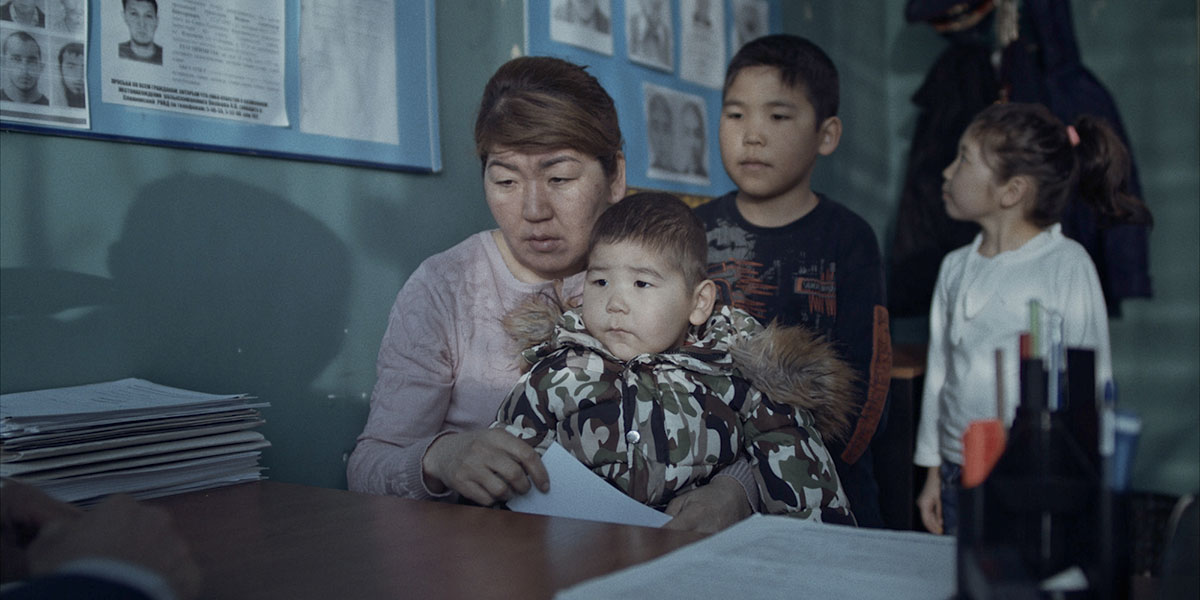
In Sharipa Urazbayeva’s stunning directorial debut, Meruert Sabbusinova plays the main character fictionalizing her own life, in which she fights for survival in a remote village in the Kazakh Steppe after her husband disappears and is presumed dead. Photo credit: tiff.net
Sharipa Urazbayeva, who directed “Mariam”, won the Best Women Director Award at the Rainbow Film Festival in London.
Darezhan Omirbayev who directed “Akyn” (“Poet”) won the Best Director Award at the 34th Tokyo International Film Festival. Yerkebulan Daiyrov won the Best Asian Actor award for his role in “Sunflower” at the 2021 Cannes Film Award.
Kazakh actor Tolepbergen Baissakalov won the Best Actor award for his role “Fire” directed by Aizhan Kassymbek at the Asian World Film Festival 2021 (AWFF). Adilkhan Yerzhanov’s “Yellow Cat” drama entered Oscar’s Best Foreign Language Film longlist.
And finally, “Sea Tomorrow,” a documentary directed by Katerina Suvorova, was released on Netflix and became the first Kazakh documentary to premiere on the Netflix streaming platform.

